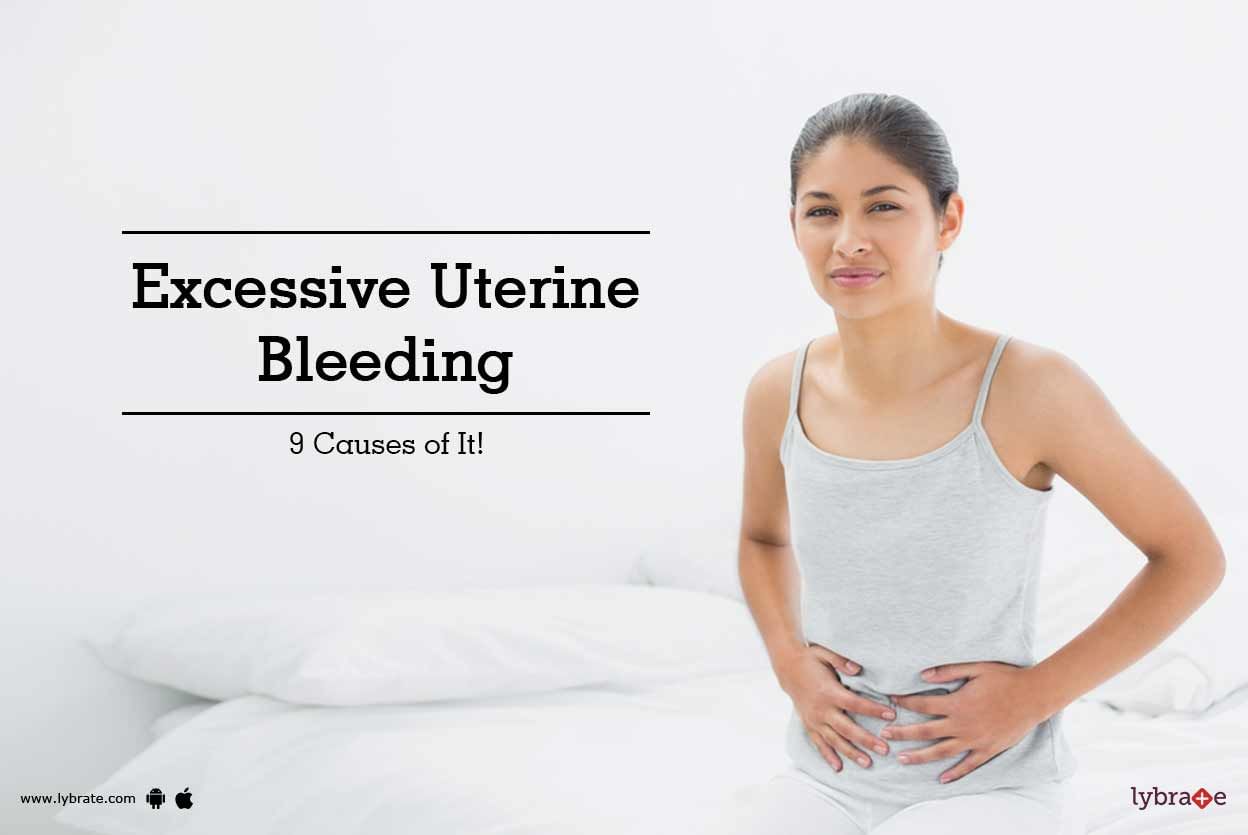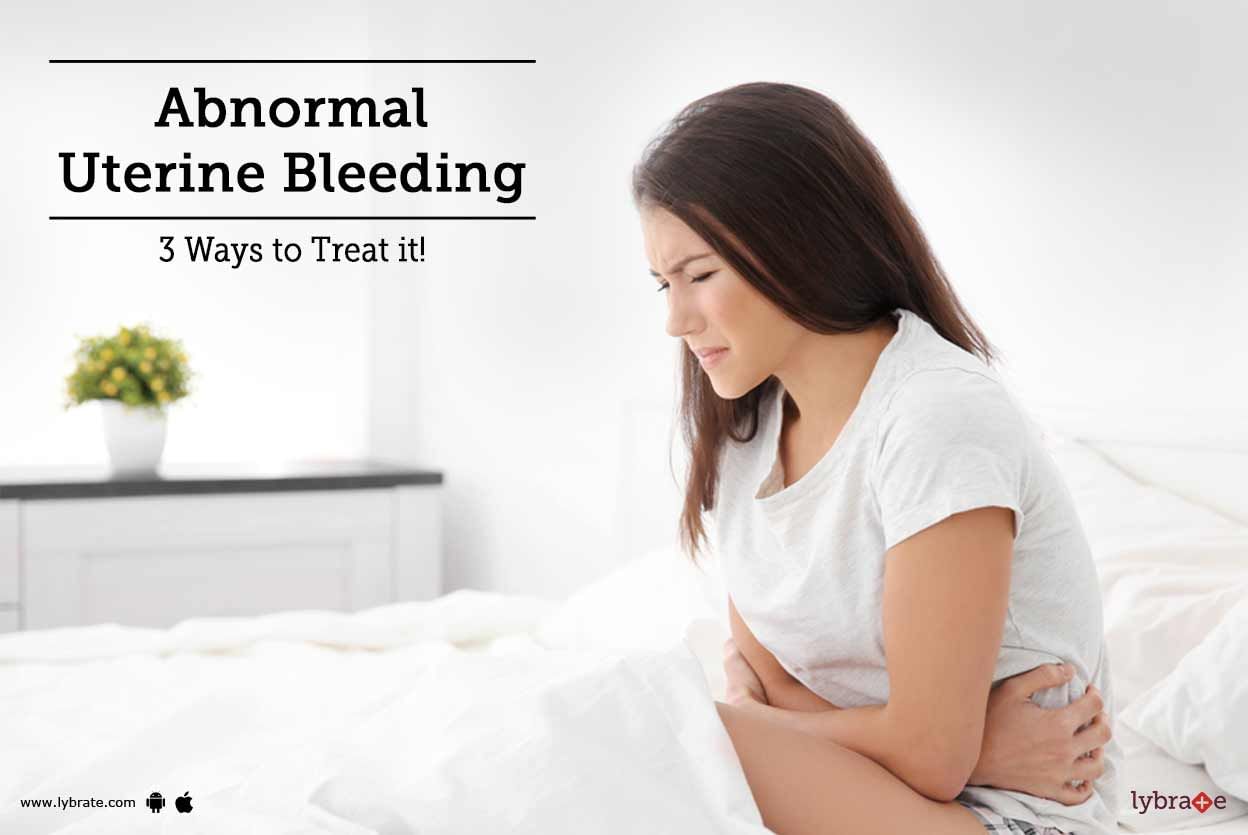Get the App
For Doctors
Login/Sign-up
About
Health Feed
Find Doctors
Health Packages
AllQ&AsTipsQuizzes
Uterine Bleeding Health Feed
Last Updated: 8 years ago• Featured Tip
Share
Bookmark
Report
Are you experiencing excessive uterine bleeding? Excessive uterine bleeding may occur between a woman s periods or before the periods, after having sex, or due to the development of spotting or bleeding after attaining menopause. Any menstrual cycle, which lasts longer than 21 35 days is called excessive, and this is an abnormal form of uterine bleeding.
Causes of Excessive Uterine Bleeding:
The various causes of excessive uterine bleeding are as follows:
One of the ma...more
Causes of Excessive Uterine Bleeding:
The various causes of excessive uterine bleeding are as follows:
One of the ma...more
Last Updated: 8 years ago• Featured Tip
Share
Bookmark
Report
Fibroids are the most frequently seen tumors of the female reproductive system. Fibroids, also known as uterine myomas, leiomyomas, or fibromas, are firm, compact tumors that are made of smooth muscle cells and fibrous connective tissue that develop in the uterus. It is estimated that between 20 to 50 percent of women of reproductive age have fibroids, although not all are diagnosed. Some estimates state that only about one-third of these fibroids are large enough to be detected by a doctor duri...more
Last Updated: 8 years ago• Featured Tip
Share
Bookmark
Report
7 causes of heavy menstrual bleeding you must know about
Heavy menstrual bleeding, also known as Menorrhagia, refers to the state of abnormally heavy bleeding during periods. It's common for women at the premenopausal stage of their life to experience heavy bleeding during periods; but if you are not among them, heavy menstrual bleeding is a matter of severe concern.
If you normally lose a lot of blood during your periods or experience severe cramps that prevent you from leadin...more
Heavy menstrual bleeding, also known as Menorrhagia, refers to the state of abnormally heavy bleeding during periods. It's common for women at the premenopausal stage of their life to experience heavy bleeding during periods; but if you are not among them, heavy menstrual bleeding is a matter of severe concern.
If you normally lose a lot of blood during your periods or experience severe cramps that prevent you from leadin...more
Last Updated: 8 years ago• Featured Tip
Share
Bookmark
Report
It is perfectly normal for women to experience the periodic monthly bleeding cycle. However, if a woman experiences uterine bleeding which is abnormal and dysfunctional, it could be a symptom of infection. Other causes of abnormal uterine bleeding include hormonal imbalance, infection in cervix and cancer of the uterus. Many women can also experience abnormal uterine bleeding during first trimester of pregnancy.
The following are considered to be abnormal or dysfunctional uterine bleedi...more
The following are considered to be abnormal or dysfunctional uterine bleedi...more
Last Updated: 8 years ago• Featured Tip
Share
Bookmark
Report
Uterine cysts are a type of cysts or tumours, which grow in the uterus. This is prevalent in women when they are near their childbearing years. Uterine cysts have some typical symptoms, which would let you know when to consult a medical practitioner for further help. It would cause excessive bleeding for a long duration of time. There is bleeding from the uterus in between your menstrual cycles. At times, it becomes very difficult to empty your bladder and irritation and discomfort are caused. I...more
Last Updated: 8 years ago• Featured Tip
Share
Bookmark
Report
Menstruation is a healthy experience of a woman s life, and it must come habitually every 28 days, for a period of 3-4 days without coagulating, and the blood loss should correspond to about a quarter of a cup. For a woman, menstrual cycle is a virtuous indicator of her overall wellbeing. Some women get irregular periods that appear at longer intervals, an unpredictable discrepancy in the duration of the cycle and the normal twenty-eight day cycle is missing. Some women have very insignificant p...more
Last Updated: 8 years ago• Featured Tip
Share
Bookmark
Report
Uterine cancer is also known as endometrial cancer and it mostly affects the middle-aged women. The uterus of a woman is a muscular organ. The cancer can affect any part of the uterus and is more common in women having obesity, diabetes and hypertension. In most cases, the cancer starts in the endometrium, hence called endometrial cancer. Uterine cancer can be cured using any of the following methods:
Surgical removal of the uterus along with ovaries, lymph nodes and fallopian tubes
more
Surgical removal of the uterus along with ovaries, lymph nodes and fallopian tubes
more
Last Updated: 8 years ago• Featured Tip
Share
Bookmark
Report
Any kind of bleeding from the uterus, which is not normal, can be termed as abnormal uterine bleeding. This refers to bleeding between periods or before periods, bleeding after having sex, spotting, abnormally heavy bleeding or bleeding after attaining menopause. If you are suffering from any of these issues, you need to check with the doctor.
Diagnosis
It is very important to diagnose abnormal uterine bleeding. There are several examinations and tests that have to be carried out, ...more
Diagnosis
It is very important to diagnose abnormal uterine bleeding. There are several examinations and tests that have to be carried out, ...more
Last Updated: 8 years ago• Featured Tip
Share
Bookmark
Report
Unexpected or abnormal vaginal bleeding usually refers to the kind of bleeding that occurs any time outside of the normal time of menstruation. Also termed as spotting, inter-menstrual bleeding or metrorrhagia, bleeding between periods always calls for extra measures to be taken against it, and is a matter of serious concern. The primary causes for unexpected vaginal bleeding generally are:
An imbalance of progesterone and estrogen levels triggered by a variety of causes like thyroid gl...more
An imbalance of progesterone and estrogen levels triggered by a variety of causes like thyroid gl...more
Last Updated: 8 years ago• Featured Tip
Share
Bookmark
Report
Dilation and curettage is a surgical procedure where the cervix (the lower part of uterus) is dilated and tissues are removed from the inside of the uterus. The procedure is usually done to treat heavy menstrual bleeding or clean the lining of the uterus after an abortion or miscarriage.
During the procedure, the cervix is dilated with medication and a thin surgical instrument is inserted through the vagina. This instrument is then used to scrape (curettage) the uterine tissues.
more
During the procedure, the cervix is dilated with medication and a thin surgical instrument is inserted through the vagina. This instrument is then used to scrape (curettage) the uterine tissues.
Book appointment with top doctors for Uterine Bleeding treatment
View fees, clinic timings and reviews
Ask a free question
Get FREE multiple opinions from Doctors
posted anonymously





















